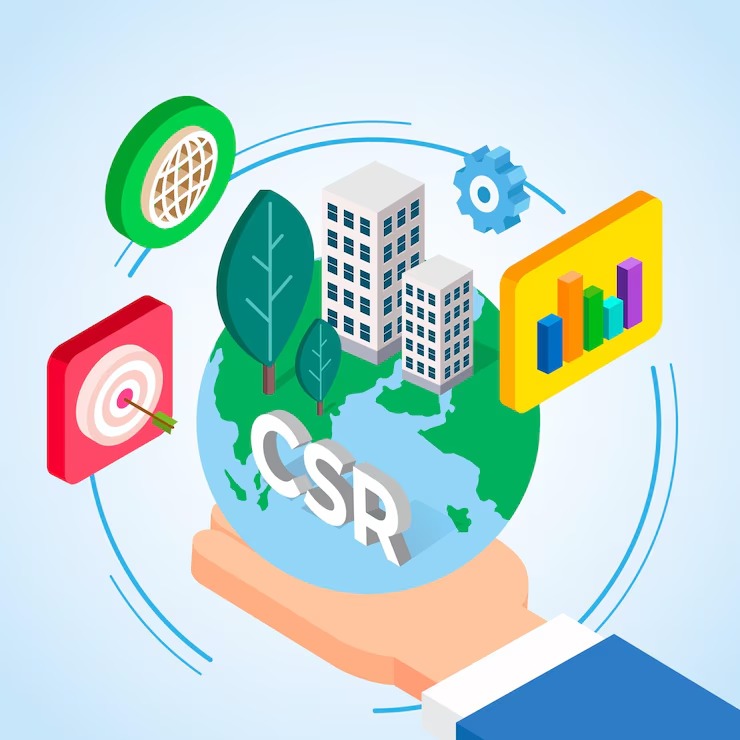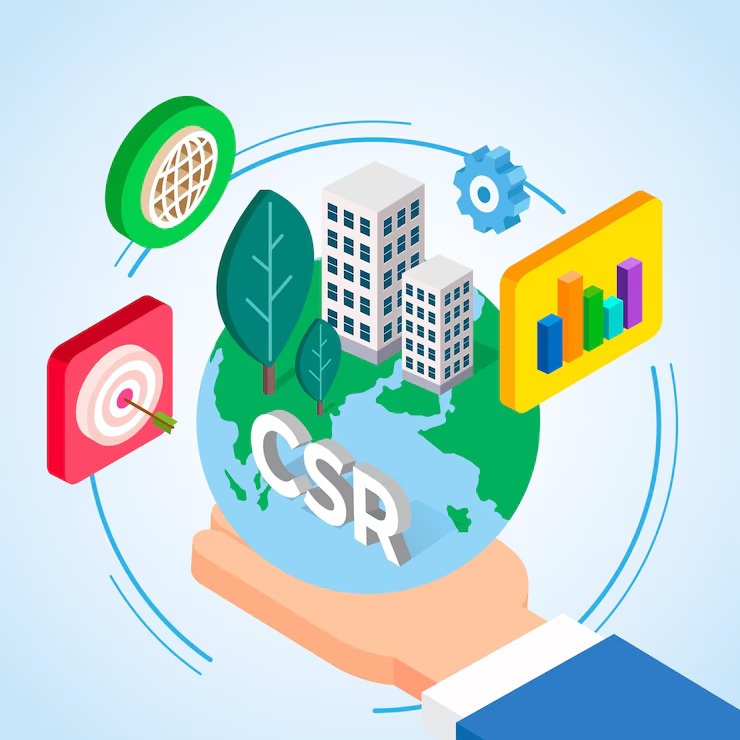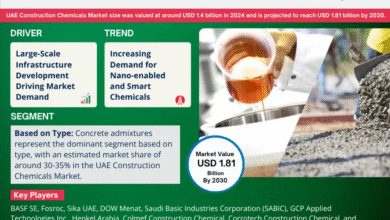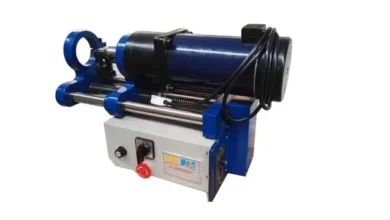Best Sustainability Reporting Software: Empowering Businesses for a Greener Future

Understanding the Need for Sustainability Reporting
In today’s environmentally conscious world, sustainability is more than just a buzzword—it is a critical component of business strategy. Organizations across industries are under increasing pressure from regulators, investors, consumers, and stakeholders to disclose their environmental, social, and governance (ESG) practices transparently. This growing demand for accountability has led to the widespread adoption of sustainability reporting, a structured process for tracking and communicating a company’s ESG performance. Sustainability reporting provides insights into how a company manages risks and opportunities related to environmental and social issues. It allows stakeholders to assess a business’s long-term viability and ethical impact. However, compiling sustainability data can be a complex and time-consuming process without the right tools. That’s where the best sustainability reporting software comes in—automating data collection, streamlining reporting frameworks, and ensuring compliance with evolving global standards.
What Is Sustainability Reporting Software?
Best Sustainability reporting software is a digital platform that helps businesses monitor, analyze, and report their sustainability performance. It captures data from various departments—energy usage, water consumption, greenhouse gas emissions, employee diversity, supplier ethics, waste management, and more—and translates that data into meaningful sustainability reports aligned with international frameworks such as GRI (Global Reporting Initiative), SASB (Sustainability Accounting Standards Board), CDP (Carbon Disclosure Project), TCFD (Task Force on Climate-related Financial Disclosures), and ESG ratings. These platforms offer features such as real-time dashboards, predictive analytics, automated data entry, audit-ready documentation, and cloud-based collaboration, making the reporting process efficient, transparent, and accurate. The best sustainability reporting software also helps businesses track progress toward net-zero goals, measure carbon footprints, and improve ESG performance through actionable insights.
Key Features to Look for in the Best Sustainability Reporting Software
When evaluating sustainability reporting software, businesses should look for several core capabilities that align with their operational goals and reporting needs. First, data integration is crucial. The software must integrate seamlessly with existing ERP, HR, CRM, and financial systems to gather data automatically. Second, framework compatibility ensures that reports adhere to globally recognized standards like GRI, SASB, and TCFD. Third, customizable dashboards and visualizations help users analyze key sustainability metrics at a glance. Fourth, automation and AI can reduce human error, speed up calculations, and provide forecasting based on historical trends. Fifth, auditing and traceability tools allow companies to validate data sources and maintain transparency throughout the reporting cycle. Finally, user-friendliness and scalability are essential so that both small enterprises and large corporations can effectively manage sustainability initiatives across global locations.
Top Benefits of Using the Best Sustainability Reporting Software
The right sustainability reporting software can offer significant strategic and operational advantages. Firstly, it enhances data accuracy by eliminating manual entry and reducing the likelihood of reporting errors. Secondly, it improves efficiency, enabling teams to generate comprehensive reports in a fraction of the time. Thirdly, it ensures regulatory compliance with current ESG disclosure laws, helping avoid penalties and reputational risks. Fourthly, it offers real-time performance tracking, enabling decision-makers to address issues as they arise rather than after the fact. Fifthly, the software facilitates stakeholder communication, building trust with investors, customers, and employees through transparent reporting. Finally, it fosters continuous improvement, helping organizations set realistic sustainability goals and measure their progress toward a greener future.
Top 10 Best Sustainability Reporting Software in 2025
1. SpheraCloud
SpheraCloud is a leading sustainability and ESG performance platform designed for enterprise-level organizations. It offers robust tools for carbon accounting, lifecycle assessment (LCA), and environmental health & safety (EHS) management. With extensive automation, AI-driven analytics, and compliance support for over 60 global frameworks, SpheraCloud is ideal for complex reporting requirements. Its intuitive dashboards allow organizations to visualize risk across the value chain and track ESG metrics in real-time.
2. Diligent ESG (formerly Accuvio)
Diligent ESG is a highly rated platform for sustainability and ESG reporting. It simplifies data capture across multiple business units and supports frameworks like GRI, CDP, SASB, and more. One of its standout features is its audit-ready traceability, which enables companies to verify data sources and comply with assurance standards. Diligent ESG also offers pre-configured templates that speed up report creation and enhance consistency.
3. Cority Sustainability Cloud
Cority offers a complete sustainability suite designed to support ESG reporting, compliance tracking, and goal management. It is known for its flexible architecture and easy configuration. The software supports a wide range of industries, including manufacturing, healthcare, and energy. Cority excels in cross-functional collaboration and enables businesses to align ESG strategies with corporate performance. Its predictive analytics tools help identify trends and optimize resource allocation.
4. Workiva
Workiva is widely used for financial and ESG reporting and is trusted by major public companies for SEC and EU CSRD compliance. Its drag-and-drop interface, real-time collaboration, and audit trails make it one of the best tools for integrated reporting. Workiva’s data-linking feature allows users to connect sustainability data with financial reports, enabling transparency and consistency. It also offers built-in framework libraries for GRI, SASB, and TCFD.
5. Novisto
Novisto is a modern ESG data management platform built for mid-sized to large enterprises. It allows organizations to centralize their ESG data, streamline workflows, and ensure that reports align with stakeholder expectations. Novisto’s strength lies in its dynamic data model, which accommodates diverse reporting requirements and evolving regulations. Its powerful analytics capabilities offer insights into ESG performance, materiality assessments, and benchmarking.
6. Benchmark ESG
Benchmark ESG (formerly Gensuite) is known for its scalable and configurable ESG modules. It is ideal for companies seeking rapid deployment and industry-specific templates. Benchmark ESG integrates with IoT devices, enabling real-time environmental monitoring and incident tracking. It supports integrated reporting and offers AI-based recommendations for continuous sustainability improvement. The platform also provides multilingual support and strong global compliance coverage.
7. Intelex ESG Management Software
Intelex offers an end-to-end sustainability and ESG reporting platform that emphasizes risk mitigation and compliance. Its sustainability management module supports energy use tracking, emission calculations, and sustainability goal setting. Intelex is particularly beneficial for organizations operating in highly regulated industries. It features an intuitive interface, automated data roll-ups, and detailed reporting templates that align with key ESG frameworks.
8. Plan A
Plan A is a sustainability software platform tailored for small to mid-sized businesses looking to meet net-zero goals. It offers carbon footprint calculation, decarbonization planning, and science-based target setting. Plan A also provides EU taxonomy and CSRD reporting capabilities, making it a future-proof solution for compliance. Its user-friendly design and affordability make it a top choice for organizations beginning their sustainability journey.
9. FigBytes
FigBytes combines sustainability data management with purpose-driven storytelling. It allows organizations to create interactive sustainability reports that resonate with stakeholders. The platform integrates data from IoT, ERP, and financial systems and aligns reporting with SDGs (Sustainable Development Goals), ESG frameworks, and regulatory requirements. FigBytes stands out for its narrative-driven interface that transforms complex metrics into engaging visual stories.
10. Greenly
Greenly is a fast-growing carbon accounting and sustainability software aimed at startups, SMEs, and corporate teams. It provides automated GHG emissions tracking based on activity data, invoices, and supplier information. Greenly supports regulatory compliance and ESG disclosures for CDP, GRI, and B-Corp. It also offers a mobile-friendly dashboard and decarbonization recommendations. Greenly’s plug-and-play approach makes it easy to use even for non-technical users.
How to Choose the Best Sustainability Reporting Software for Your Business
Choosing the right sustainability software depends on several factors. First, assess your company’s reporting maturity—startups may need basic carbon accounting, while multinational firms require a robust ESG framework with complex integration. Second, define your compliance requirements based on regional laws (such as EU CSRD, SEC climate disclosures, or IFRS standards). Third, evaluate budget and scalability—consider whether the tool can grow with your sustainability program. Fourth, prioritize ease of use and team collaboration. A tool that’s difficult to navigate may hinder adoption across departments. Fifth, test the vendor’s support and updates, especially regarding new frameworks and regulatory shifts. Finally, ask for customer testimonials, live demos, and trial periods to make an informed decision.
The Future of Sustainability Reporting Software
The sustainability landscape is evolving rapidly, and so is the technology supporting it. The best sustainability reporting software of the future will rely heavily on AI and machine learning to provide predictive modeling, real-time insights, and automation at scale. Integration with blockchain technology may enhance transparency, enabling immutable ESG records across global supply chains. IoT sensors will expand data collection capabilities, capturing real-time emissions, energy usage, and equipment efficiency. Meanwhile, natural language generation will transform raw data into investor-ready narratives instantly. As regulatory pressure increases and stakeholder expectations rise, software vendors will focus on hyper-personalized, industry-specific solutions that reduce reporting burdens and drive actionable sustainability outcomes.
Conclusion: Investing in the Best Sustainability Reporting Software Is Essential for a Responsible Future
Sustainability reporting is no longer optional—it is a business imperative. The best sustainability reporting software empowers organizations to collect accurate ESG data, meet compliance obligations, and communicate performance with clarity and confidence. By investing in a platform that suits your goals, size, and industry, you not only ensure legal alignment but also build a culture of transparency and accountability. As global businesses shift toward decarbonization, circular economy models, and inclusive governance, technology will play a pivotal role. From small firms to large corporations, the right sustainability reporting tool can be a catalyst for change—turning compliance into competitive advantage and purpose into performance.




